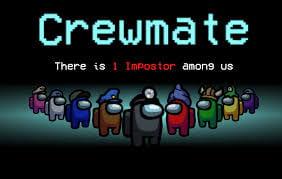 In the early 1960s, a revolutionary concept called the internet was introduced to the public and now it is apart of everyday life. The latest news, clothes, music, and much more is right at the person’s fingertips. Just as easy as it is to access all of this, it is much easier for internet providers to take it away.
In the early 1960s, a revolutionary concept called the internet was introduced to the public and now it is apart of everyday life. The latest news, clothes, music, and much more is right at the person’s fingertips. Just as easy as it is to access all of this, it is much easier for internet providers to take it away.
The basis of net neutrality allows the internet user to surf the internet freely without any restrictions; it was an idea that the Federal Communications Commission thought should stay. On Dec. 21, the FCC approved an order that allowed the continuation of an unrestricted internet, but left some power in the hands of the wireless providers. The order contained three rules: no blocking, transparency, and no “unreasonable discrimination.” The set of rules were strikingly similar to the Google-Verizon proposal introduced to the FCC just a couple months prior to the order. The proposal focused primarily on the idea that wireless companies should be more distant from its wired relative.
“I believe if a company were to take advantage of this rule, they would lose some of their business because nobody likes to pay more than what is necessary,” Matthew Silvas, freshman, said.
When asked, 54 percent of the 1,000 people surveyed were against the new rules, but although it may seem like these rules are new, they have technically been the same for the past five years. In 2005, the FCC C.E.O issued a set of principles that enforced net neutrality, but only for cable and DSL connections without any mention of wireless connections. The new rules follow in the same suit of the ones made five years ago, but focus more on what the wireless companies can and can’t do.
“I go on the internet to check the sports scores, for entertainment, and school. It would be ridiculous if I would have to pay extra to go on a website, Elizabeth Powell, sophomore, said.
One of the rules put in to place is called “no-blocking.” It suggests that the wireless companies are able to block websites that contains things like viruses and malware but are not be able to block sites like Skype™ just because it competes with the company’s service. Also, the companies are prohibited from discriminating against any online services so this means that while the wireless providers can’t restrict costumers from going on to certain sites, they can still charge them each time they go on the site. For example, if costumers wanted to go on YouTube™, the provider could charge the costumers each time they go on it, at whatever price the providers want to set.
Even though close to five billion people own cell phones, only one-fifth have plans that include internet access. “If wireless internet becomes metered, it is possible that the number of people that have those plans could drop. If something isn’t broken, why fix it, Dalton Hill, junior, said.

















